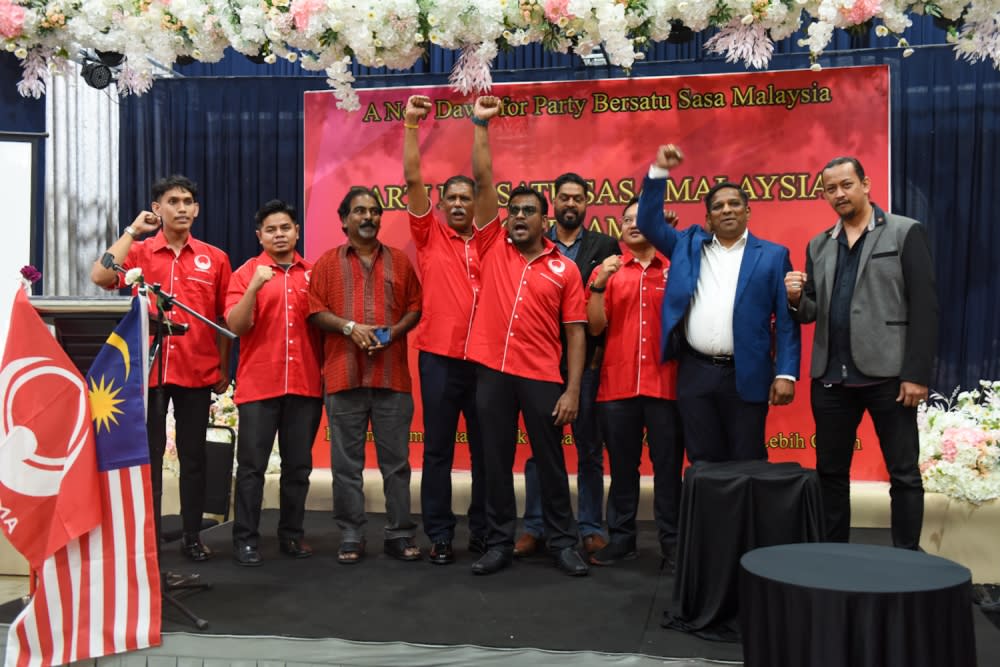Where did fledgling party Bersama come from and who’s behind it?

KUALA LUMPUR, June 11 — Parti Bersatu Sasa Malaysia (Bersama), a little-known political party with roots in Sabah, held a low-key launch in Shah Alam yesterday, despite its ambitions to establish a national presence.
At the muted event attended by around 100 people, predominantly elderly individuals, no major announcements or policy platforms were unveiled, leaving Bersama’s specific goals and ideology unclear beyond its party president Danial Marnokaran Abdullah’s vague statements about wanting to challenge the “status quo” of the present political scene with a roster of new faces.
Originally founded in 1994 by one Shuhaiddin Langkap as an Opposition party called Parti Demokratik Setiahati Kuasa Rakyat Bersatu Sabah (Setia), the party has struggled to gain traction.
Despite contesting several Sabah state elections from 1995 to 2022, it has never managed to win any seats.
In 2011, it rebranded as Parti Bersatu Rakyat Malaysia (Bersama) to rejuvenate its appeal, before adopting the name Parti Bersatu Sasa Malaysia (Bersama) this year.
The party’s repeated rebranding efforts seem to be an attempt to establish relevance after years of being a perennial also-ran in Sabah’s political arena.
Questions also abounded as to what the word “Sasa” meant in Bersama, and according to Danial, it means “strong” in Malay and is commonly used to describe well-built and physically fit bodies.
According to Danial, who previously served as party secretary-general before an internal shakeup which began in October last year, Bersama is a legally registered entity with the Registrar of Societies (ROS). The party has also submitted a new constitution that is awaiting ROS approval.
The internal restructuring was apparently needed following alleged dissatisfaction among party members since 2020, against its then president, one Nazry Roy.
As part of its rebranding effort, the party’s operational base was also moved to Kuala Lumpur, for greater political appeal.
Danial was made president only in December last year, in an emergency meeting. Not much information is available on Nazry.
Details about the party’s leadership also remain scant. Danial himself is relatively unknown. On LinkedIn, he listed himself as the chief executive of Mycliks Inc, a purported US e-commerce technology startup, and the chief technology officer of RD Energy Group LLC, another claimed US company, according to checks by Malay Mail.
In February this year, Danial and his two brothers-M. Vijendran and M. Thaewendran, all former directors of a company, were charged at the Ipoh Sessions Court with 19 counts of accepting deposits totalling RM5.6 million as cryptocurrency investments without a valid licence.
The Star reported that the trio pleaded not guilty to charges under Section 137(1) of the Financial Services Act 2013, which can result in up to 10 years in jail, fines up to RM50 million, or both if convicted.
While the party may not feature any notable figures yet, Malay Mail was made to understand that it does boast of former election candidates who contested the 15th general election (GE).
An example is Izzat Lesly, who previously contested as an independent candidate in the Seremban parliamentary seat during the 15th general election (GE15).
Izzat found himself in a five-cornered battle against heavyweight challengers from major coalitions, namely, Pakatan Harapan’s (PH) Anthony Loke, Perikatan Nasional’s (PN) Fadli Che Me, Barisan Nasional’s (BN) Felicia Wong, and Parti Pejuang Tanah Air’s (Pejuang) Mohamad Jani.
However, Izzat’s independent bid garnered a paltry 373 votes, failing to secure even one-eighth of the total votes cast required to recoup his electoral deposit.
Another is former Selangor Amanah Youth chief Muhammad Fauzi Hasim, who stood in Bangi during GE15 as an independent candidate in an eight-way race.
He faced Syahredzan Johan (PH), Hoh Hee Lee (BN), Muhammad Nazrul Hakim (PN), Annuar Salleh (Pejuang), Chee Chee Meng (Parti Rakyat Malaysia), Suthan Mookaiah (independent), and Jamal Hisham Hashim (independent).
Muhammad Fauzi only secured 401 votes.
A source from the party said that there are about four other similar candidates, but their identities would only be revealed in due course.



